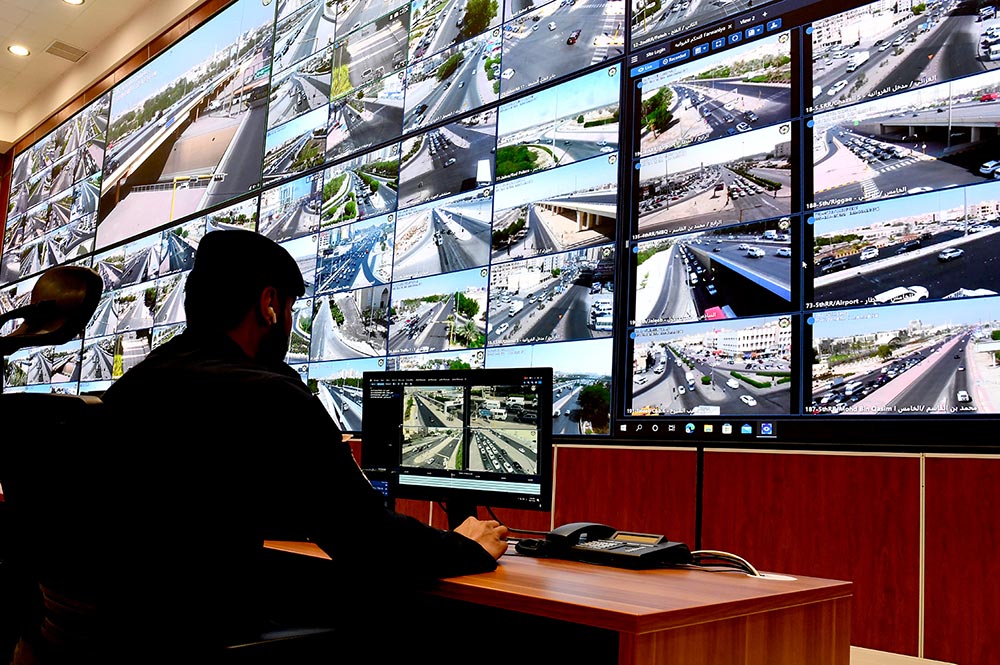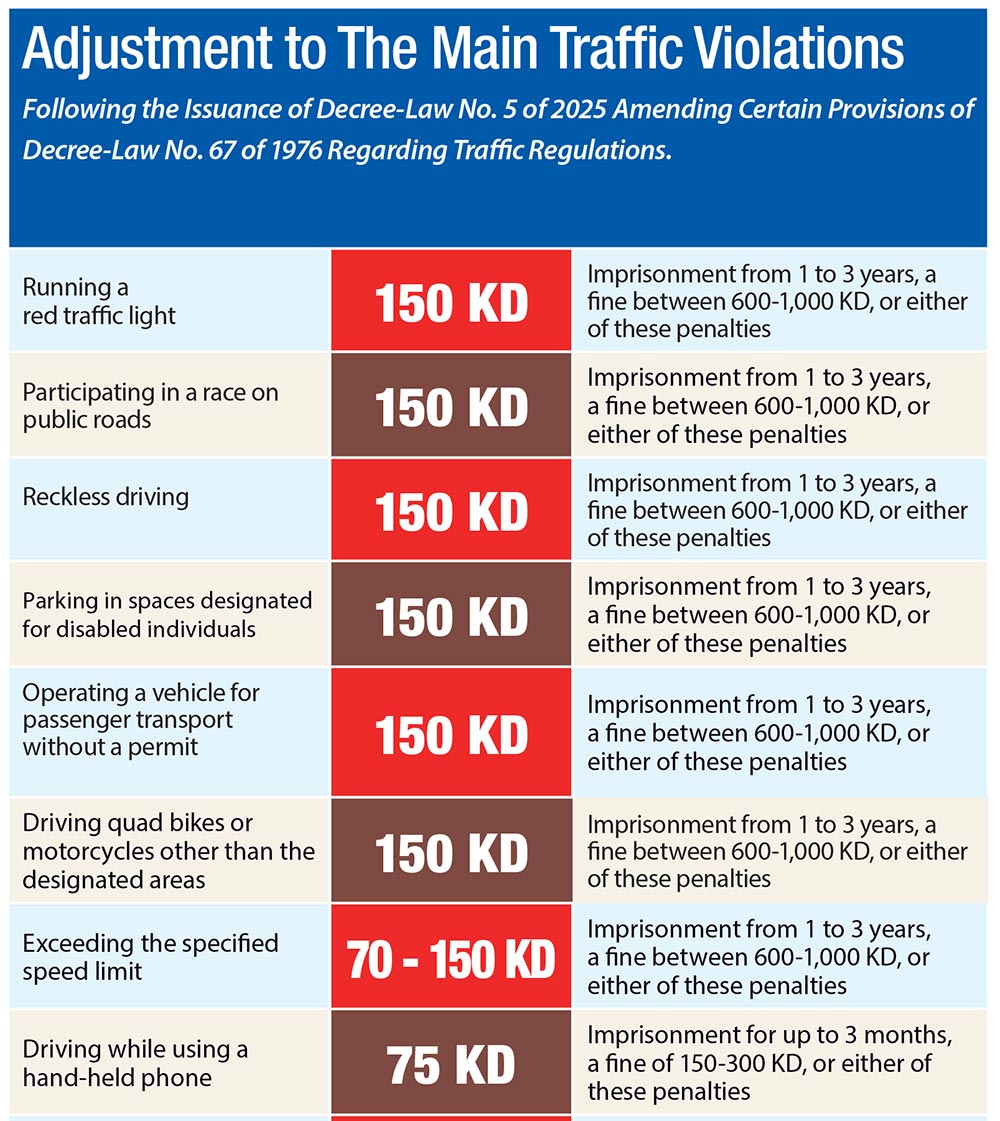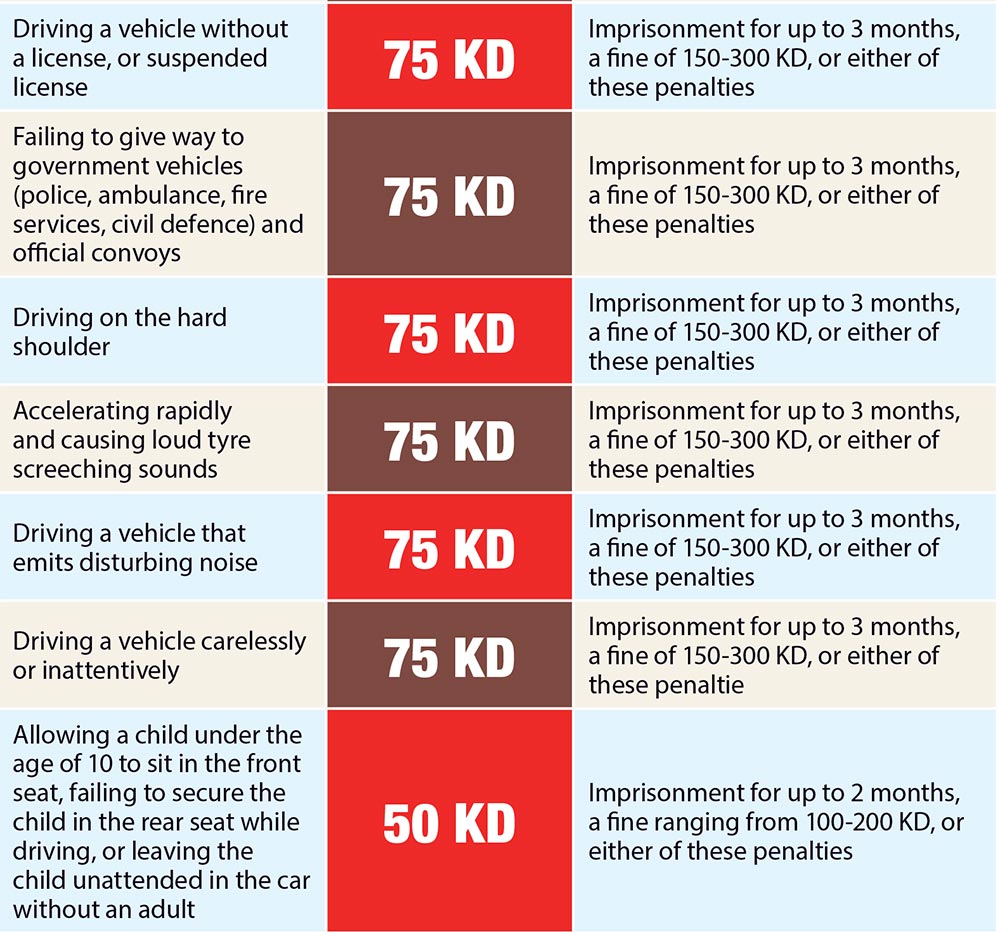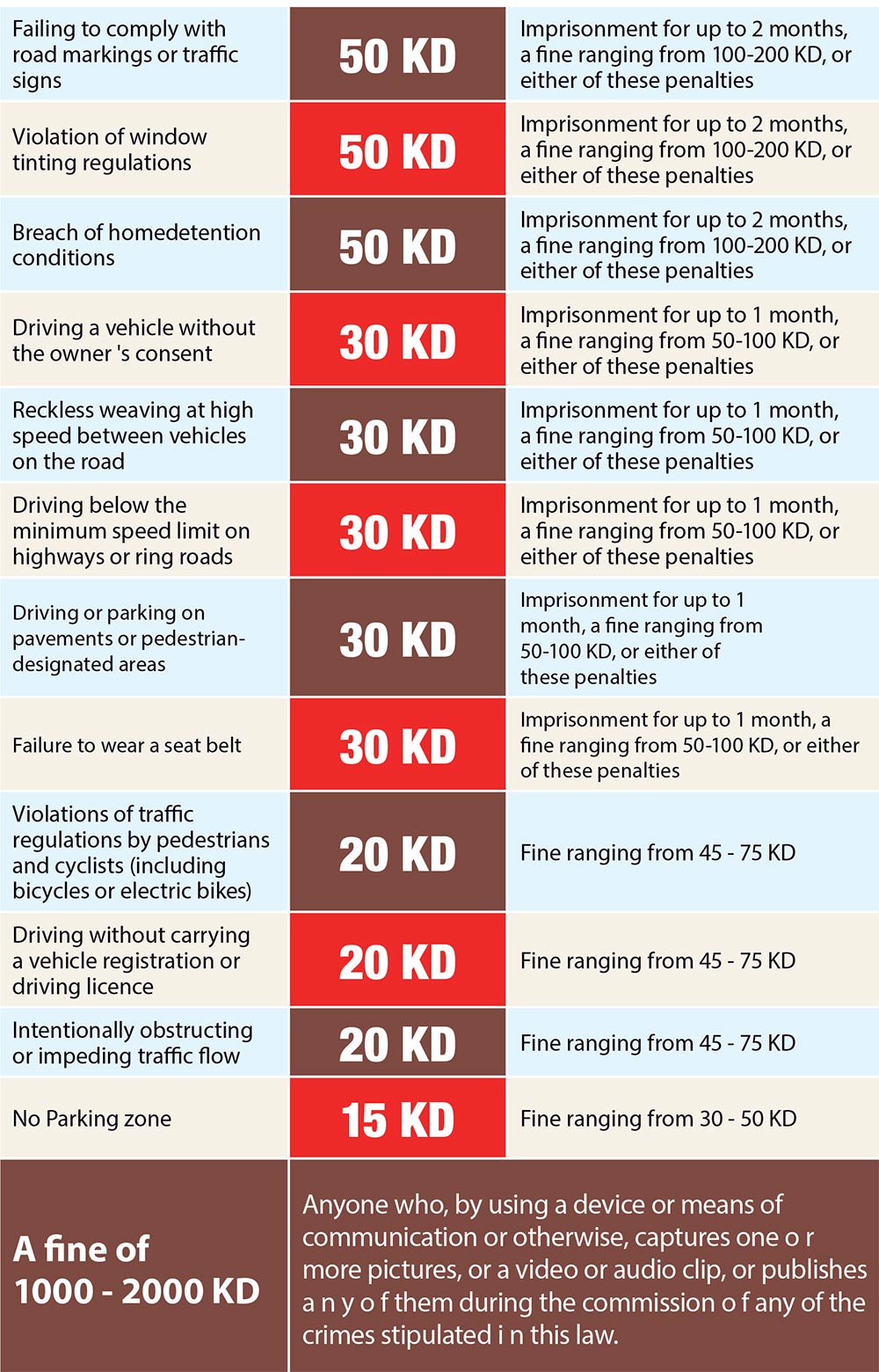Kuwait’s New Traffic Law: What Drivers Need to Know

The Times Kuwait Report
In a sweeping effort to bolster road safety, reduce accidents, and adapt to the rapid pace of urban development, Kuwait is all set to implement major reforms to its traffic laws in the best interests of the general public to protect lives and property. The Ministry of Interior has announced a tougher stance on violations, which come into effect on April 22, 2025.
These reforms are built upon the foundation laid by Traffic Law No. 6 of 2008, which has governed road use, vehicle maintenance, and driver conduct for over a decade. The upcoming changes mark a transformative shift in Kuwait’s approach to traffic management and enforcement.
Kuwait’s existing traffic regulations cover a broad range of areas essential to maintaining road order and safety. The violators of the traffic laws are penalized with fines, license suspensions, or imprisonment in severe cases for offenses such as speeding, driving under the influence, using mobile phones while driving, not wearing seat belts, running red lights and reckless or dangerous driving.

The motorists must yield at crosswalks. Failing to do so can result in monetary penalties, reinforcing the country’s commitment to pedestrian protection.
A network of traffic cameras monitors compliance, including speed and signal violations. Fines are issued electronically, and notifications are sent to violators via the online traffic system. All accidents must be reported to the police. In serious cases involving injury or significant property damage, emergency services must be contacted. Legal action may follow if negligence is determined.
Another serious offence is parking in places, especially designated for disabled persons or restricted zones, and carries hefty fines and vehicle towing while paid parking is enforced in busy commercial zones.
This is addition to attempting to escape in the event of an accident that harms the safety of an individual or in the event of failure to respond to an order issued by members of the police force to stop; exceeding the speed limit by more than 50 km/h and driving buggies in places not designated for them; using the vehicle for a purpose other than that for which it was intended and using the vehicle to transport passengers for a fee without a permit.
Several penalties will see sharp increases, some of which are mobile phone use while driving KD 75 (up from KD 5); seatbelt violations KD 30 (up from KD 10); reckless driving or racing on roads KD 150 (up from KD 30); running red traffic lights KD 150; parking in places designated for disabled persons KD 150 (up from KD 10); environmental violations (e.g., illegal dumping of debris or garbage) KD 75 and speeding which ranges from KD 70 to KD 150, depending on how far limits are exceeded.
The serious cases may be referred to the courts, with potential jail time and fines reaching up to KD 1,000.
Kuwait will also adopt some of the region’s strictest penalties for DUI (driving under the influence of drugs or alcohol) such as general DUI KD 1,000 to 3,000 and 1–2 years in prison; DUI and involving property damage KD 2,000 to 3,000 and up to 3 years in prison; DUI causing injury or death KD 2,000 to 5,000 and up to 5 years in prison.
To ease traffic congestion, expatriates will be limited to owning one vehicle under their name, unless exemptions are granted for specific professional needs.
Citizens and residents are encouraged to stay informed and compliant at all times. The traffic laws reflect Kuwait’s serious commitment to safer roads, sustainable traffic management, and enhanced quality of life across the country.
According to security sources community service may replace jail time for select offenses and vehicles involved in serious violations may be impounded from the owner’s residence using electronic tracking; redressing the damage resulting from the crime, by obligating the convict to restore the property to its original state, redress it, or compensate it and attending awareness, rehabilitation, and training programs and lectures.
The convict shall be subject to one or more of these programs, and the implementation procedures shall be determined by a ministerial decision in coordination with the relevant authorities. The Ministry of Interior prior to implementing major reforms to its traffic laws launched an educational media campaign across TV, radio, social media, and print outlets to raise awareness about the new regulations and ensure smooth public adaptation.
Meanwhile, the e-traffic portal provides convenient digital access for paying traffic fines, reviewing violation records, renewing driving licenses and monitoring vehicle registration and inspection dates. This system enhances transparency, reduces processing times, and improves compliance through automated enforcement.
With the 2025 reforms, Kuwait is entering a new era of road discipline. The combination of higher penalties, digital enforcement tools, vehicle ownership reforms, and public education aims to significantly reduce violations and improve safety for both motorists and pedestrians.
As the deadline approaches, all drivers — citizens and residents — are encouraged to stay informed and compliant. These changes reflect Kuwait’s serious commitment to safer roads, sustainable traffic management, and enhanced quality of life across the country.
















